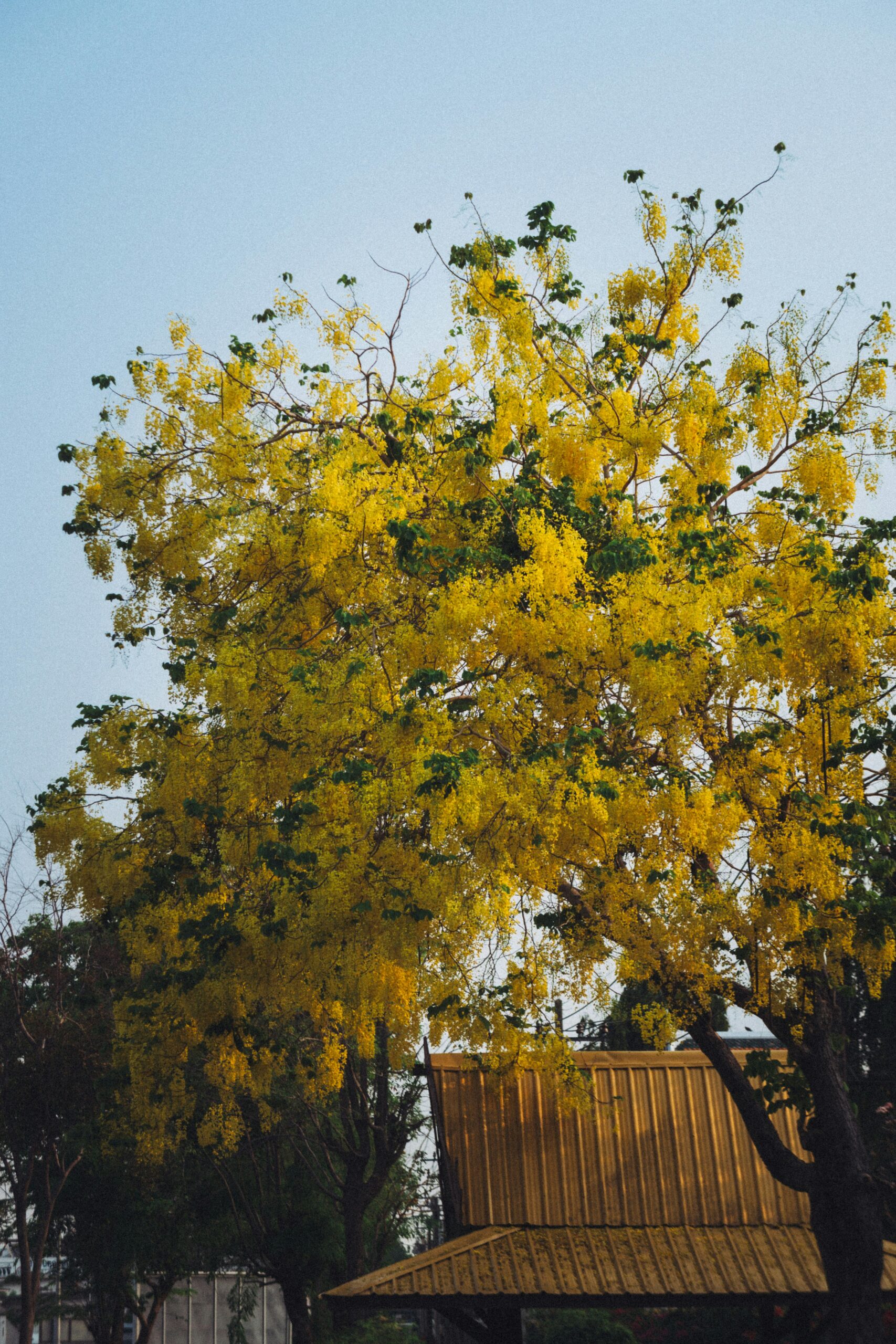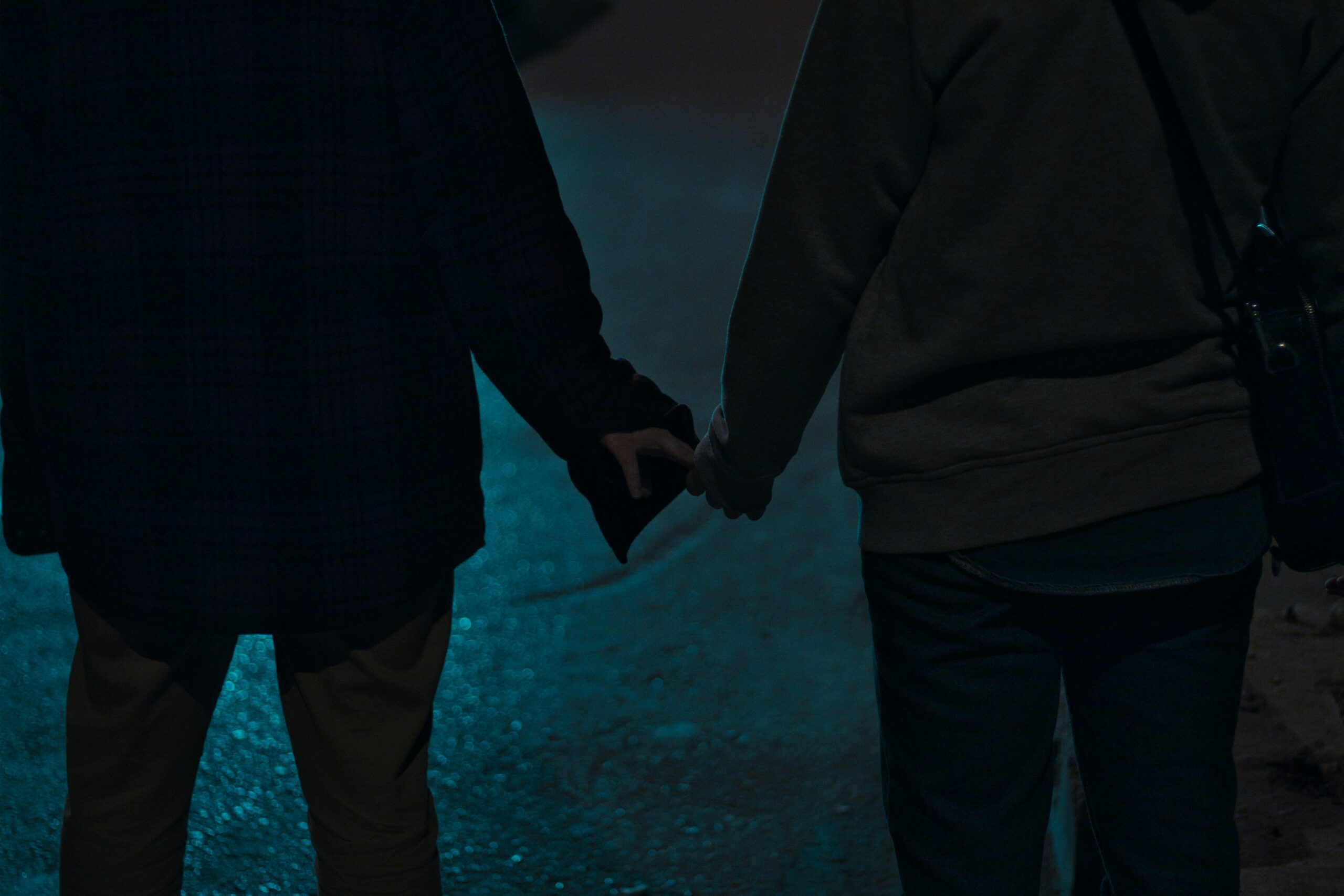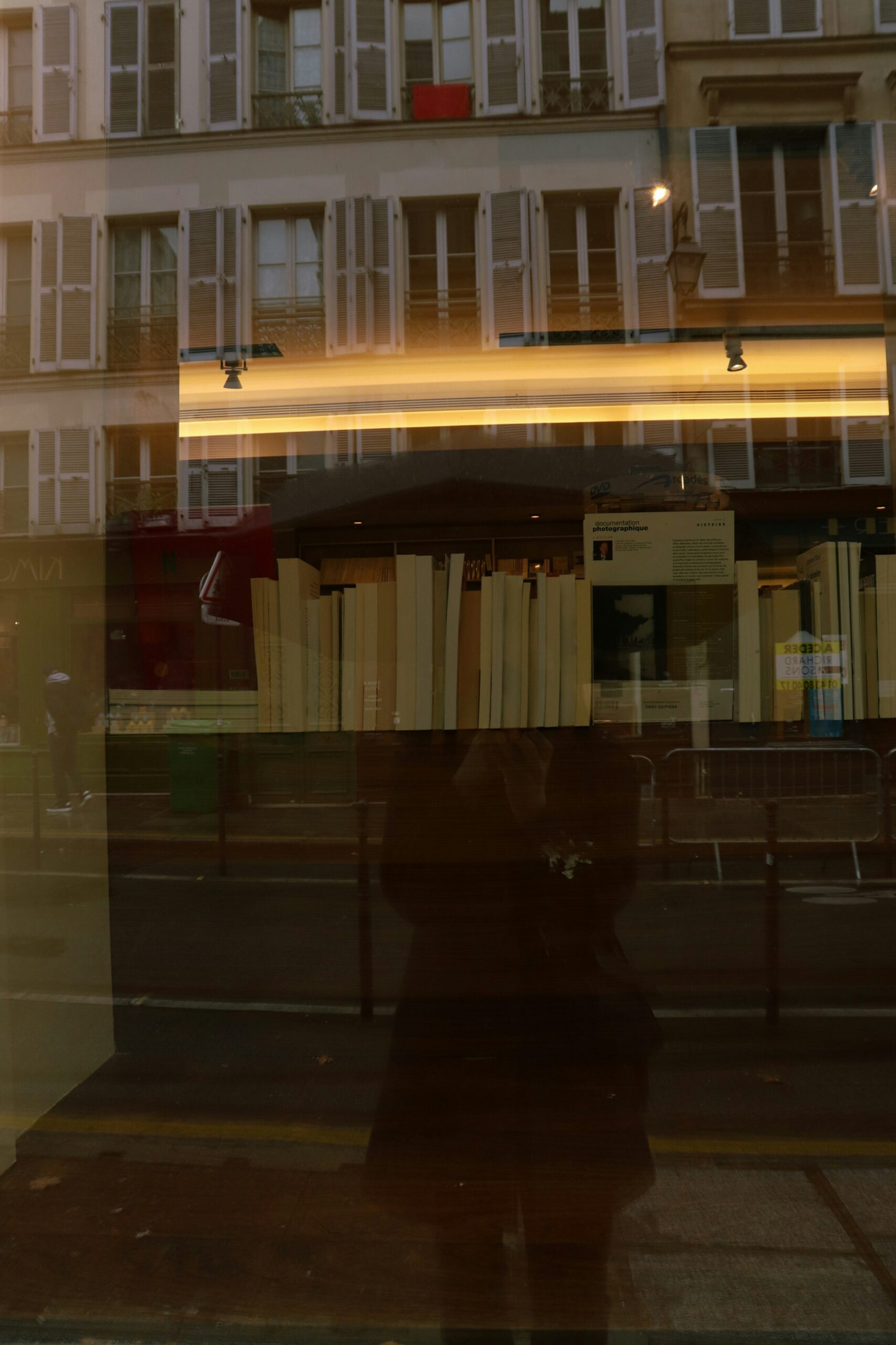| Kriti Sahay | July 2025 | Short Story |
Each summer, when the temperatures soared and hit a comfortable 45, the amaltas bloomed. Chandeliers of rich lemony yellow, dangling heavily from the thin branches, till the entire tree seemed to droop from the weight.
I remember waking up that morning— first, burying my head in the pillows and muttering about the light; then, staring at the ceiling, watching my sleep float up and disappear like fumes in the air. And then my gaze turned right to the window pane. I stared mesmerised at the amaltas, my eyes awash in yellow.
I don’t remember leaving for work that day, but I do remember coming back. It was 5 pm, but the sun was still burning harshly outside. Inside the house, the stillness seemed to magnify the heat till it pressed down on you with a physical force.
In Delhi, the heat clings to your skin, sticking to your forehead, flushing the back of your neck. It feels like a fever, but it’s not— just like the pit in your stomach isn’t real, even if it makes your head feel like it’s floating, the heaviness of your limbs isn’t physical, but it’s there. It’s difficult to differentiate, in the heat, between what is real and what is not.
I made myself something to drink and then switched on the AC. The sweat evaporated, leaving behind a chill, and the pit deepened, tunneling into my insides. I felt myself overcome by a vague pukishness. I fell asleep, staring at the amaltas, gently swaying.
When I woke up, it was pitch black. The stillness, the heat, the emptiness of the house, everything seemed magnified. The pit grew, clawed.
I decided to text him. He replied— he could make time.
He was one of those lovers. You never knew what you could expect from him and how much. You had to be careful, not of his wrath but of his disappointment. The way he gently tilted his head to the side and knitted his black brows together, his mouth pressed together in that skeptical frown. “I don’t believe you,” he’d say to any excuses you might make, preemptively striking down any dissent. How do you argue with someone who refuses to believe you?
It was nothing surprising, the disbelief. I had come to expect it. He somehow found it difficult to believe that my problems could be what I made them out to be. Then, the only alternative left with me would be to feign hurt, indignation at the disbelief, from my own boyfriend at that. He would relent then, and click his tongue impatiently at yet another act of feminine irrationality. But he would relent nonetheless, and soothe my hurt, rub my back.
He had to have figured it out, my subtle manipulation to gain his sympathy. He’d be stupid not to, and he was many things but not stupid. It made me feel a tinge ashamed. Not the act of manipulation itself, but the knowledge that he knew.
I took pains to make myself presentable to meet him: dabbing concealer to hide the bags under my eyes, and applying kohl to disguise the redness. I wondered if the lotion and perfume covered my unwashed state adequately. It was of no use, no matter how many times I dabbed my armpits with the towel or blotted my face with a tissue, the heat clung to my skin better than any makeup could. The thought of meeting him this way clawed in my belly, but the thought of spending the next few hours by myself was more daunting.
We always met at the same cafe, a short distance from his office. It had outdoor seating, and the staff didn’t mind if he smoked. As soon as he sat down, before he had even lit his first cigarette, they would bring him a glass of rum. He valued the efficiency, he told me.
Tonight, he seemed a smidge irritated, his cigarette hanging, forgotten, in between his fingers, a long column of ash at its end. His glass was already empty.
“I’m not late, am I?” I asked, laughing nervously.
His head suddenly bobbed up as if awakened from a daydream, “Oh no,” he said, “It’s not you, just a work thing.”
“You work too hard these days. You have no time for me.” I was almost embarrassed at the petulance in my voice, but he simply smiled and held my hand, the gesture almost paternalistic.
Dinner was quiet. He talked about his work for a bit, and I made sympathetic noises. At some point, we both stopped talking and simply ate our food in blessed silence. I briefly lifted my eyes to find his gaze fixated on my chest. Flushing, I adjusted my neckline. He grinned, clearly pleased by my reaction.
We had been walking down the street to his apartment complex when he pulled me into a darkened alcove between two buildings. The resident dog started and whimpered, but stood his ground. He tucked his tail and eyed us from a safe distance.
I felt a sudden kinship with the dog, with his bewilderment, at this sudden move. His hands started to roam my back, and he tucked his face into my neck, taking a deep breath. I don’t know if he could smell the staleness of the sweat underneath my perfume, but I could feel my insides shrink into a ball. A dull feeling of nausea churned to life in my belly, rising to the back of my throat. I felt like the very air around me had thickened into a slurry, invading my nostrils, asphyxiating me. I pushed him away, gently. He stopped and looked at me as if I had sprouted horns.
“First, you complain that I neglect you, then when I try to make up for it, you act like this.” His voice carried bewilderment and a vague hint of anger.
“Not here,” I tried to soothe him, “We are in public. What if a cop turns up?”
He appeared mollified, and we started walking again. But we were walking towards his house, and it didn’t seem to comfort me. We were lovers, it shouldn’t be this way. Something in me seemed to always rise up in protest and outrage every time our bodies touched. And that’s what I felt at that moment— outrage, no, anger. Anger, mostly at him. Anger at his inability to give me what I wanted. His inability to soothe me without taking something for himself. And did he even soothe me? Every time we touched, it felt like he was taking something from me, and I was too selfish to give it away. I wanted my person to remain my own.
“If you want to just go home, you can do that,” he said when we were at the doorway to his place. “I don’t think you want my company tonight. I don’t know why you called me in the first place.”
“Why would you say that?” I bristled. “I called you. I came to you. We’re here. Why would I go home now?”
“Whatever you say.”
I took his hand when we were inside, pulling him towards me. I was trying to prove something. Our lips met, and the taste of his smoker’s breath filled my mouth. There was that sense of nausea again. I was very aware of his hands spanning my waist, pawing at me, pulling me towards him, till he stuck to me, to my skin, like the heat did. At some point, I felt my head disengaging itself from my body, taking a gaseous form, and floating up, up, up, until it dissipated into the atmosphere. I felt a hollow void above my torso, where my head was supposed to be, and he was making out with that void. He led me to the bedroom, and I didn’t say no.
When I walked back home in the morning, with the sun only just risen and the amaltas quietly ablaze, I wondered why I hadn’t said no. It’s a simple enough word. One that he would have respected. But it would have driven us further apart, and we had drifted too far from each other already. In the deepest recesses of my heart, I knew I couldn’t afford to lose him. He was the only thing that felt real these days, beyond the pit, beyond the heat, beyond the amaltas.
I found myself walking towards the amaltas tree, plucking a waterfall of yellow flowers for myself. The flowers seemed immune to the heat; they seemed to revel in it while I was drowning. There seemed no logical reason as to how the heat could nourish the amaltas and suffocate me at the same time.
The soft light of early morning was firing up, and I realised I needed to go to work again. I walked up the stairs to my flat, intending to put the flowers in some water, freshen up and dress for work. But when I finally stepped inside, a strange lethargy seemed to turn my limbs to lead. The flowers were discarded on the floor, and I fell on the bed, unwashed.
I don’t remember going to work that day.
_________________________

Kriti Sahay is a writer and daydreamer based in Delhi. She has a Bachelors and Masters in English Literature from Delhi University and University of Hyderabad, and a deep love for all things literary. Inspired and influenced by Indian writers and feminists like Kamala Das, Meena Kandasamy, Audre Lorde and Toni Morrison, Kriti’s writing seeks to capture lived experiences, histories and psychological realities of women in India.
_________________________
Feature image by Honney Artkongharn via Unsplash
Find MeanPepperVine on Instagram @MeanPepperVine



